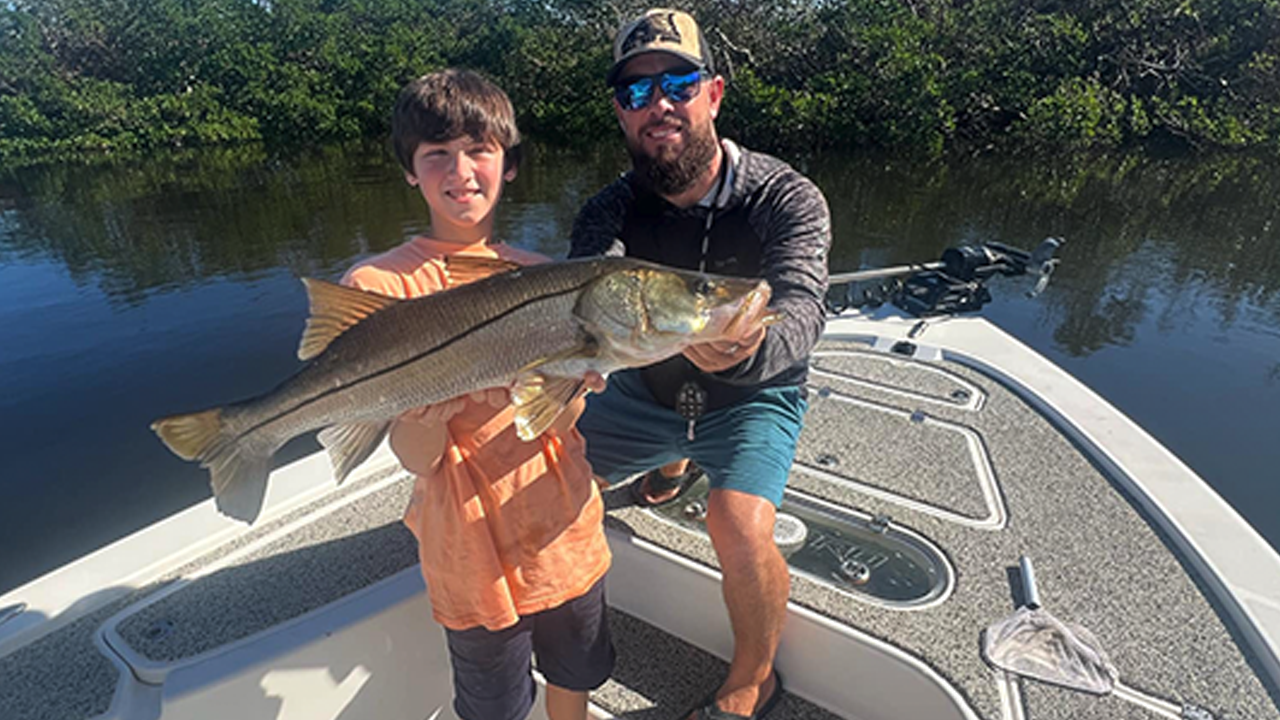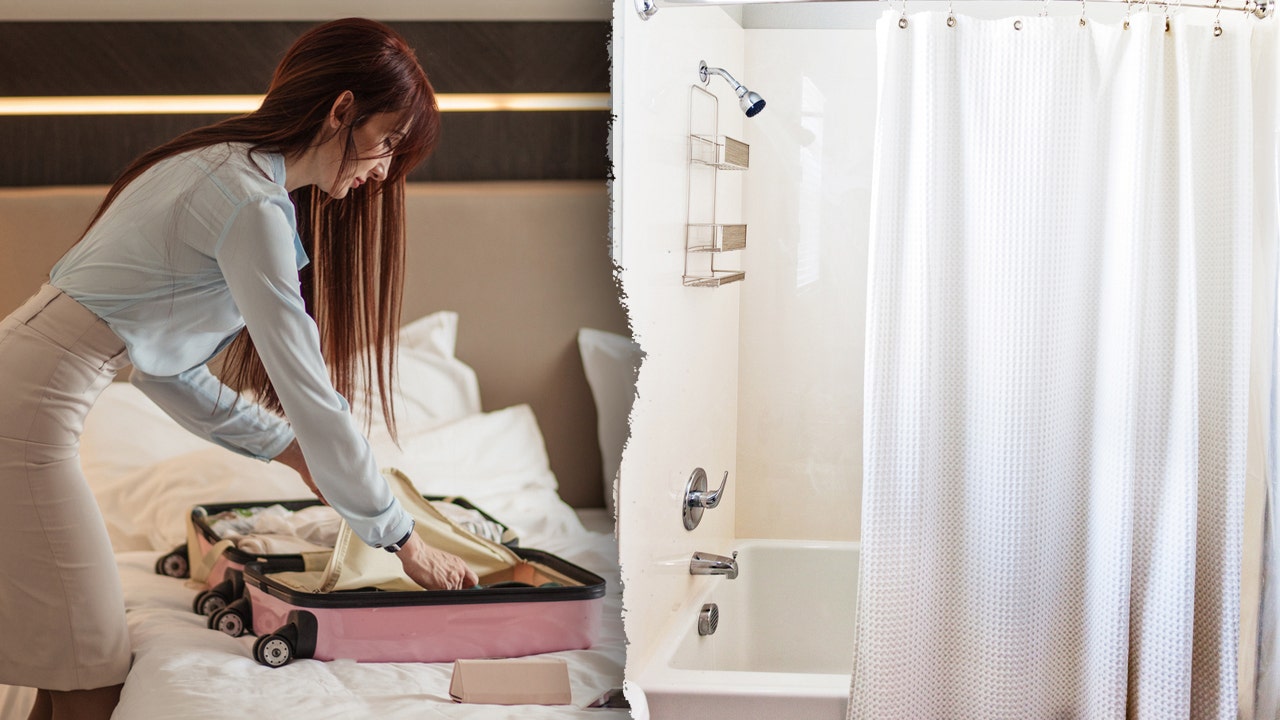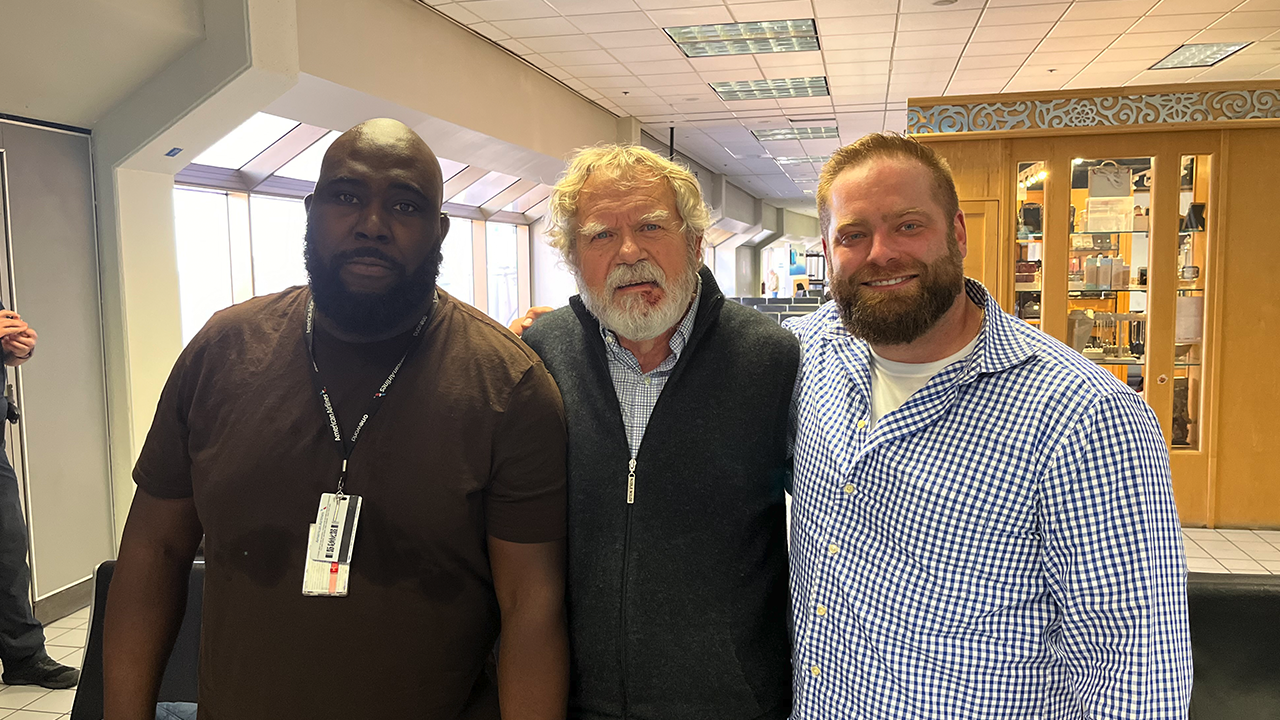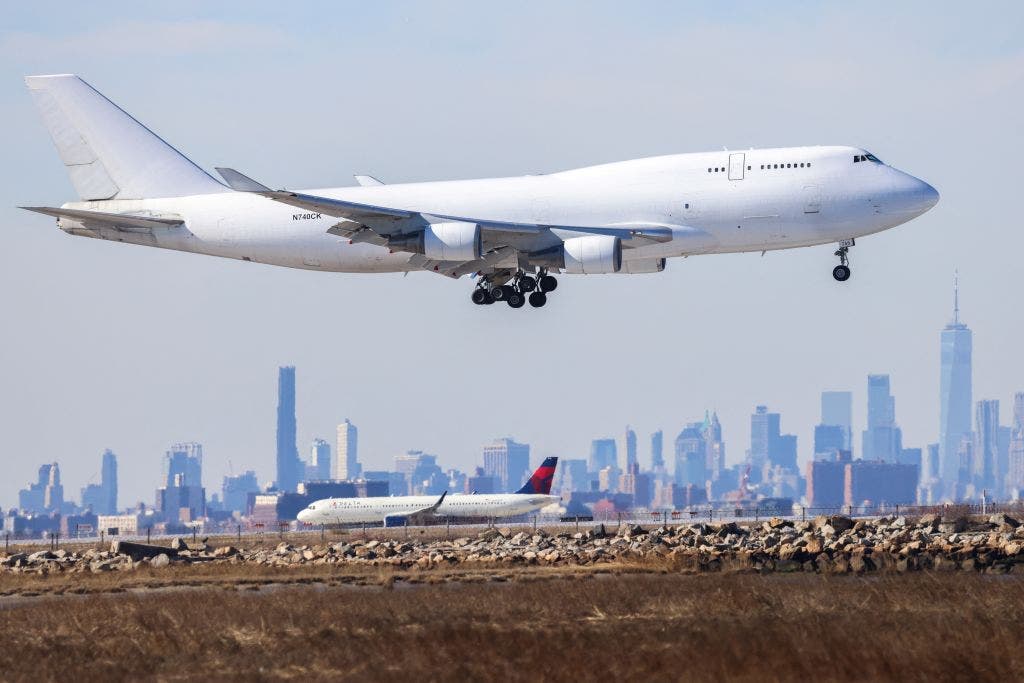“Unforgettable experiences are in the making,” teases an Instagram post from Feb. 13 liked by more than 80,000 people. The photo offers a glimpse of an empty white-sand beach, azure waters, and the barely visible roofs of buildings immersed in a lush landscape of trees. “We are eager to welcome new guests to our resort in Thailand.”
Obscuring the view of the resort: a film clapboard emblazoned with a coral-colored flower logo and the words, “White Lotus Resort & Spa.”
White Lotus resorts, of course, exist only in the fictional world of HBO’s hit hospitality-and-bad-behavior series, “The White Lotus.” The post was HBO’s way of letting fans know that shooting had begun on the series’s third season.
For years it’s been clear that entertainment productions can be big business for locations, but “The White Lotus” has taken the trend to another level, spurring tourism with a show about tourism (at least on its surface), by publicly partnering with tourism. After two seasons, the biting and delectable social satire has an influence that far transcends its many golden statuettes and endless supply of memes. To the travel industry, it can turn a season’s region into an “it” destination, drawing international visitors to the White Lotus stand-ins (the Four Seasons Resort Maui at Wailea in Season 1; the San Domenico Palace, Taormina, a Four Seasons Hotel in Season 2), not to mention the surrounding sights.
While Mike White, the show’s creator, was undoubtedly drawn by Thailand’s natural beauty and welcoming people, the Thai government also significantly sweetened the pot. The financial details have not been disclosed (HBO did not comment), but last year the Thai government approved a plan that increased the rebate for international productions to 150 million Thai baht (about $4.5 million). Several months before that, the government announced that for five years it would waive the personal income tax it had been collecting from foreign talent. In other words, Season 3’s cast, which includes Leslie Bibb, Jason Isaacs, Michelle Monaghan, Parker Posey and returning Season 1 favorite, Natasha Rothwell, will not have to pay Thailand to work in Thailand.
What’s at stake for Thailand is clear: pre-Covid, the country was making 3.5 billion Thai baht per year from international productions. After falling during the height of the pandemic, that number hit 6.6 billion baht last year, according to the Tourism Authority of Thailand. Considering the potential windfall during filming and long after, it’s understandable that the country would court Mr. White and his production.
A spokesperson for the Tourism Authority would not give specifics, but wrote in an email, “It had been brought to our attention that ‘The White Lotus’ team was exploring the filming of Season 3 in Asia and therefore we reached out to them to assist with potential hotels to film/stay, possible airline sponsorships and other production support to bring some of their budget costs down to allow Thailand to be more competitive.”
The strategy has already started to pay off: Since the official announcement, searches for Thailand have already jumped 50 percent on Expedia, the online travel agency.
“It’s another form of product placement,” said Jon Gieselman, president of Expedia brands. In this case, however, the product is an entire country. “It only makes sense that a studio and destination would cut a deal and in exchange get some promotion.”
How ‘White Lotus’ Took Off
“The White Lotus” was born out of necessity. HBO approached Mr. White during the early pandemic months of 2020 and asked if he had written anything that could be shot quickly and under strict Covid restrictions. He told them his idea to film a limited series set in a hotel, and by fall was in production on what he hoped would feel like, as he later told Vanity Fair, “a tropical anxiety attack.”
The series may have cleverly skewered some of the ugliest parts of humanity — privilege, racism, sexism — but, oh, the view. Online interest in the Four Seasons Resort Maui jumped by 425 percent after Season 1 ran, according to the property.
Season 2 offered a new slew of eye-catching locations in Sicily, whether on a yacht in the Mediterranean with some (spoiler alert) murderous “high-end gays,” or in a fresco-filled villa in Palermo. Following the October 2022 premiere, Expedia noted a 300 percent jump in online searches for Sicily.
For Marc Speichert, executive vice president and chief commercial officer of Four Seasons Hotels and Resorts, partnering with the production has been a lucrative no-brainer.
“Following their roles as the backdrop in ‘The White Lotus,’ both Four Seasons hotels in Maui and Taormina experienced jumps in website visits, availability checks as well as enhanced brand and property awareness; ultimately driving more bookings,” he said in an emailed statement. The Taormina hotel was almost completely sold out for the summer 2023 season, he added.
The Covid rebound
Just how much Thailand’s economy relies on tourism was made clear in the fall of 2021, when the Ministry of Tourism & Sports released dire pandemic-impacted numbers. The number of passengers on international flights to the country had fallen by 95 percent and hotels were only 9 percent occupied. Visitor numbers dropped to 510,000 in 2021 from nearly 40 million two years earlier.
Last year, the country welcomed 28 million visitors, well below 2019’s high. In December, Prime Minister Srettha Thavisin met with his tourism ministers to encourage them to draw more foreign tourists year-round, according to the Thai press, telling them, “I want foreign tourists to stay longer and spend more.”
In the zero-sum world of tourism, Thailand’s “White Lotus” gain was another country’s loss. Last fall at the Tokyo Film Festival, during a session on how to attract productions to film in Japan, Georgina Pope, a producer who works in the country, told a story about accompanying a “high profile” showrunner and production team on a scouting trip in Japan, the Hollywood trade publication Deadline reported.
She said conversations about shooting in Japan ended when the showrunner — whom Deadline identified as Mr. White — and team were informed that “the Thai government had just announced a renewal and improvement on their film incentive system,” she said, adding that “for their project, that meant $4.4 million alone.”
But which Thai property would stand in for the titular White Lotus? Sleuths quickly noted the Four Seasons Resort Koh Samui was sold out during February and March, when the series would be filming. The Anantara Mai Khao Phuket Villas has also been reported to be a location. Needless to say, both properties offer a spectacularly stunning array of plunge pools, outdoor showers and postcard-worthy vistas that could make a director of photography drool. Neither Four Seasons nor Anantara would say whether their hotels were involved; Mr. White did not return a request for comment.
Set-jetting in overdrive
The New York Post journalist Gretchen Kelly used the term “set-jetting” in 2007, referring to touring the locations of the movies “Pan’s Labyrinth” and “Babel.” Since then, there have been enough fans and fortune to go around the globe. According to one study from the University of Zadar, “Game of Thrones” contributed $200 million to Croatia’s economy between 2013 and 2018. New Zealand saw a 50 percent increase in inbound tourism after the success of “The Lord of the Rings,” though it is hard to tease out how much of that is because of the movie. Albuquerque, N.M., mayor Tim Keller wrote on his Instagram in 2022 that “Breaking Bad” had “over $385 million in economic impact.” No wonder the city erected statues of Walter White and Jesse Pinkman.
When international borders closed in 2020, the set-jetting spigot ran dry. Going abroad was done from home, with a screen serving as a sad stand-in for a passport. The closest a fan might get to the Scottish Highlands would be binge watching “Outlander.” The only way to make it into a national park was by way of “Yellowstone.”
By the time Covid restrictions were lifted and the homebound could finally fulfill their pandemic travel fantasies, set-jetting had become one of the primary factors in picking a destination.
A TripIt survey released earlier this month showed that nearly twice as many American travelers plan on taking pop culture-related trips this year than they did in 2023. And according to an American Express study released last year, 70 percent of Gen Z and millennials said that they have been inspired to visit a location based on something they saw onscreen.
It’s a demographic statistic that didn’t go unnoticed by Four Seasons, a chain not known for catering to the 40s-and-under set. “Gen Z and millennials are certainly a target for our brand, as they represent the next generation of luxury travelers,” said Mr. Speichert. “Over the next five years, we anticipate a significant wealth transfer of approximately $68 trillion from baby boomers to millennials, accompanied by a 50 percent increase in High-Net-Worth individuals.”
Not that Thailand’s Tourism Authority is expecting every set-jetter to be able to afford a Four Seasons stay. After all, Season 2’s cobblestone Sicilian streets were as coveted as the hotel’s piano bar. And Thailand’s Tourism Authority is hoping to showcase more than luxury properties. Earlier this month, HBO announced that the Thai singer Lalisa “Lisa” Manobal, of the South Korean K-pop group Blackpink, will make her acting debut in the series.
“The show will undoubtedly generate great awareness for Thailand,” said the Thai Tourism Authority’s spokesperson in an emailed statement. “‘The White Lotus’ will certainly strengthen the kingdom’s status as a preferred filming destination and a beacon of experience-based tourism, inspiring even more filmmakers to consider filming in Amazing Thailand.”
Follow New York Times Travel on Instagram and sign up for our weekly Travel Dispatch newsletter to get expert tips on traveling smarter and inspiration for your next vacation. Dreaming up a future getaway or just armchair traveling? Check out our 52 Places to Go in 2024.






